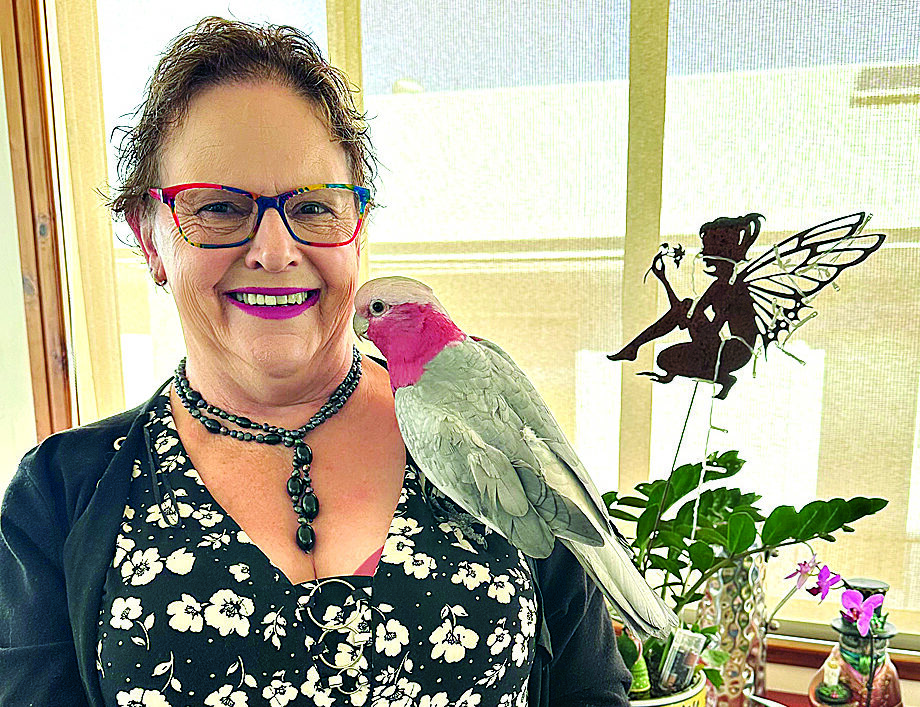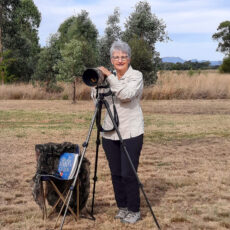The shock announcement that triple by-pass surgery was necessary to save Karen Smith’s life was the most unexpected news.
It was March 1999, and Narrabri resident Mrs Smith had only just celebrated her 40th birthday.
“This is a silent and invisible disease,” said Mrs Smith.
“People should be aware that there is a 15 per cent chance that a daughter can inherit heart disease from her father as I did, and a 50 per cent chance that it can be passed on again to your children.”
The hard truth is that one in four deaths is attributed to a cardiovascular condition.
And indeed, every 30 minutes an Australian loses their life to heart disease.
“My story began when I was hanging out washing one day and felt very unwell.
“I was sweating and knew something was not right.
“That day I was prescribed an angina spray, but a few weeks later, I suddenly felt even worse,” she said.
“All the tests I’d undergone so far had turned up no results, indicating there was nothing wrong with my heart.
“Things took a turn this time however, when I arrived at Narrabri Hospital and I was referred to Royal Prince Alfred Hospital, Sydney.
“But there was still no indication of an emergency, so I booked my own flight to Sydney to attend specialist appointments.
“That’s why it was such a shock when an angiogram test at the RPA showed that I needed a triple by-pass.”
The by-pass operation was successful, however Mrs Smith still suffers symptoms and in more recent years has undergone four further stent placements.
“I still feel symptoms of angina sometimes, which is treated with a nitrolingual spray which helps to open the heart vessels.
“If I have used the spray three times with a two-minute gap between each application and if the angina doesn’t subside, I call an ambulance,” Mrs Smith continues.
“Angina to me is a warning. Even though I am on medication for these heart cramps, I know that anxiety can mimic angina, so it is important to remain calm.
“Surrounding myself with my pets certainly helps with that!”
Mrs Smith and her sons Dean and Mitchell live with a menagerie of four cats, two dogs, a galah named Keef and a cockatiel named Loki.
Sadly, Mrs Smith’s husband Larry, passed away in July 2020 after a long illness.
“Larry was such a great support to me when I was going through my operation, and he was a major part of my aftercare.
“Now I want to spread the word and let others know about the symptoms, however slight, that could be lurking at any time with family members and loved ones.
“I want people to know there is a lot of difference between men’s and women’s symptoms and severity when they are having a heart attack, and the symptoms can vary greatly from person to person,” continues Mrs Smith.
“Women can experience jaw, shoulder and neck pain along with pain travelling down the left arm with severe chest pain.
“Men are more likely to suffer purely left arm and chest pain.
“So, for women it can be hard to detect.
“Even though I am medicated, due to my father’s genes this awful, silent disease will not go away, in fact it has worsened in the last 18 months.
“Thankfully due to my medication I am still alive and enjoying life.
“I tire easily and I tend to have one quiet day a week when I just rest, maybe doing some sewing or scrapbooking, it’s simply making sure you have a life balance.
“We are so lucky in Narrabri to have good doctors who listen to us and treat us accordingly.
“Heart disease cannot be fixed, only treated, and I am blessed to have such a wonderful specialist and his team in Sydney.
“I would advise anyone to have a heart check, to be aware of blood pressure readings, to eat well, walk and exercise.
“It’s the little things that go a long way to keeping you healthy.
“Mine is one of millions of journeys that people have taken.
“Some of us survive and some of us don’t.
“I live a full and happy life, but I know this disease can take me any time it likes – but you can’t live in fear and you shouldn’t stop living your best life possible.”
Heart, stroke and vascular disease – also known as cardiovascular disease or CVD – is a broad term that describes the many different diseases and conditions that affect the heart and blood vessels.
The most common and serious types of CVD include coronary heart disease, stroke and heart failure.
Heart Week is Australia’s national heart health awareness campaign held in the first week of May each year.
It provides an opportunity for health professionals and the Australian public to start a conversation about heart health and take positive steps to reduce heart disease risk.
For this year’s Heart Week, The Heart Foundation of Australia has been encouraging Australians to do three simple things to look after their heart – check their blood pressure, use the heart age calculator to understand their risk of heart disease, and book a heart health check with their local GP.
By using resources such as the Medicare toolkit, health professionals Australia-wide have delivered almost 440,000 Medicare heart health checks to date.
Despite being a critical tool in detecting and preventing heart disease, heart health checks are due to expire on June 30, 2023.
It is the only Medicare item dedicated to CVD prevention and the sole health assessment Medicare Benefits Schedule (MBS) item for Australians aged 50–74, who represent more than half of heart disease hospitalisations.
A petition, signed by more than 40,000 so far, has been launched to appeal to save the Medicare Heart Health Check system.
It can be accessed at https://campaign.heartfoundation.org.au/save-heart-checks
To order photos from this page click here



